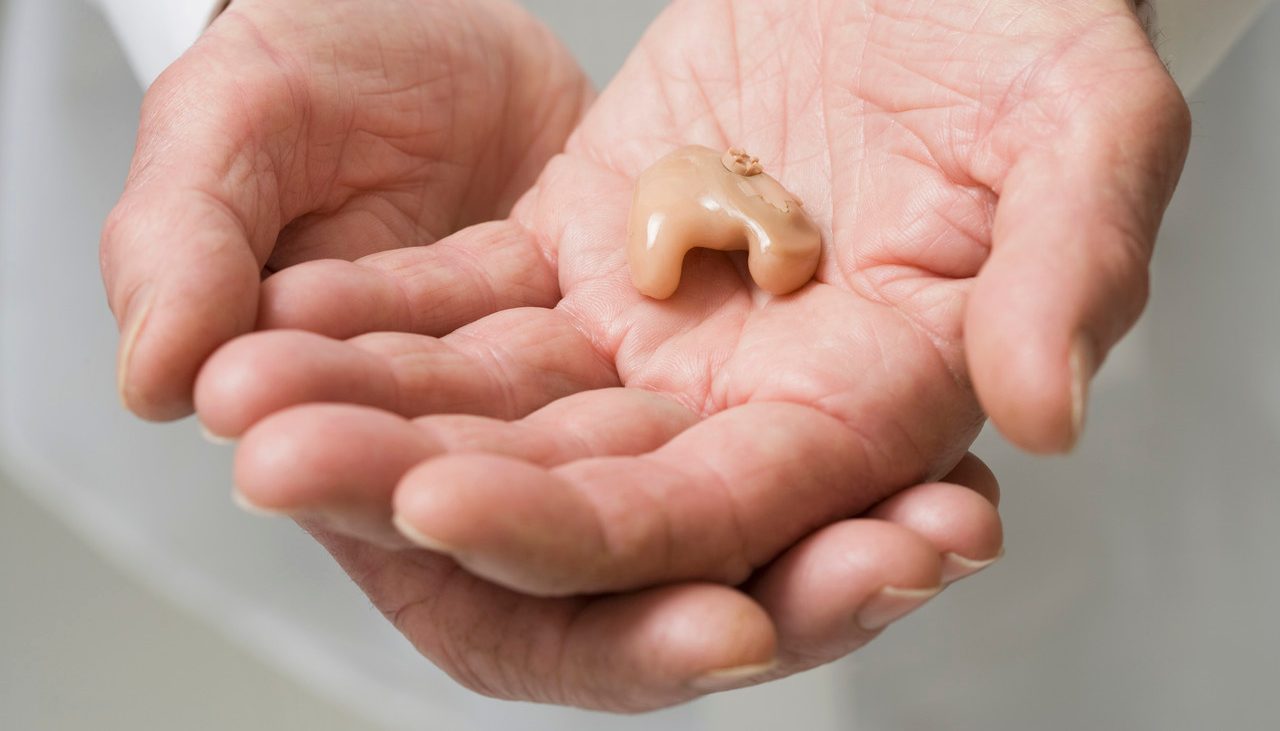February 14, 2018
What Can You Do To Deal With Hearing Loss?

EDITOR’S NOTE: This is the final installment of a multipart series on hearing loss and its effect on relationships. Read the first part here and the second here.
When I meet new people, I tell them fairly quickly that I suffer from hearing loss, because my hearing aids aren’t especially visible. But that doesn’t mean I expect them to change their behavior. I tell them so they won’t be surprised later, if I ask them to repeat or don’t answer when they speak to me from behind.
My friend Roger, now 69, has been severely hard of hearing since the age of four. His hearing aids are visible. But he says that few people adapt their behavior. “You have to accept the fact that the burden of dealing with it falls entirely on you,” he says.
YOU MIGHT ALSO LIKE: The Sure-Fire Way to Improve All Your Relationships
Age-related hearing loss can creep up on you. Don’t push away complaints by saying “I can hear just fine.” If you’re often getting words wrong — confusing “bat” and “cat” — you’re probably suffering from age-related hearing loss, which tends to occur in the high-frequency ranges. In English, these tend to contain the consonants, says Adrienne Rubinstein, an audiologist who teaches about speech and hearing issues at Brooklyn College. If you’re really not sure, try a 5-minute free online test.
Many people know they can’t hear well but just try to muddle on, often pretending they hear. “Shame, and not wanting to put people out, have been real stumbling blocks for me,” says my friend Sally, who like me, has relatively small hearing aids that people don’t notice.
Pretending just leads to misunderstandings. When people talk to you from the other room or with their backs to you, it’s up to you to say, “I can’t hear,” and change the arrangement. Walk over to the person speaking to you or say, “Tell me later when you can face me.” When people whisper to you, just shake your head.
Do you frequently spend time with someone who mutters? It’s annoying, but someone with perfect hearing could probably understand your mutterer. The simple rule: Ask people to repeat when you can’t hear them. Saying “Don’t mutter at me!” won’t get you far. You might as well demand that someone never slouch. How we speak is a basic habit.
Be realistic about your ability to hear at public events. For events with open seating, arrive in time to get a seat with a clear view, or one near the front. Buy good seats. I would rather spend more money than waste my money on a seat where I’ll be frustrated. I use the amplifications devices available at New York City theaters for the hearing impaired. They’re often not reliable, though, so as a backup, I also keep my hearing aids handy in my lap and loaded with batteries. Don’t ask the people next to you to tell you what’s going on! They’ll be annoyed and unless they speak loudly and bother other people, you won’t be able to hear their answer.
Do wear your hearing aids and maintain them. With a new aid, adjust slowly by wearing it at least two hours a day. Don’t be reluctant to return for adjustments or try another hearing aid during the trial period.
Maintenance! Earwax in the mold or tubing will block sounds, but all you need to do is brush it clean. Batteries are easy to replace. People over the age of 50 need yearly ear exams, especially if they are exposed to loud noise. Ask your doctor if any of your medications affect hearing.
If you have hearing loss in both ears, two aids usually are better than one.
Learn how to use your hearing aid’s settings. The most current devices have a setting designed for use with a phone.
Learn how to turn on English-language captions on movies you watch at home or TV shows, rather than asking people to tolerate the volume you prefer. Add-on wireless devices can work too.
Always remember that when you have a misunderstanding your hearing may have been a factor. It’s easy to forget, if you think you’ve heard someone correctly. People fall into this trap all the time — and argue that they are “right.” Perhaps you misheard. Perhaps she misspoke. Blame isn’t the issue. The issue is appreciating each other’s efforts to communicate, and, bottom line, communicating.


